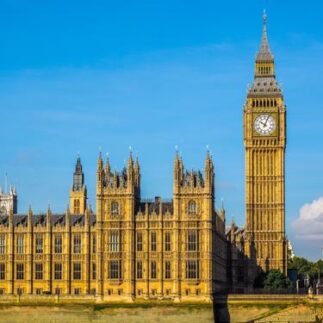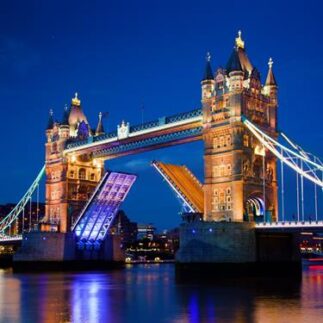Overview
Great Britain Online Gaming Overview
Regulated
Remote and non-remote gambling operations are licensed under the Gambling Act 2005. The Gambling Commission (GC) holds powers as the gambling regulator in Great Britain (GB), they licence, regulate, advise, and provide guidance to individuals and businesses that offer gambling in GB. The National Lottery in the UK is also under their remit. The GC represents the government’s Department for Digital, Culture, Media, and Sport (DCMS).
The Gambling Act 2005 defines “gambling” as “gaming”, “betting” and “participating in a lottery”.
Gaming is defined as playing a game of chance for a prize. A “game of chance” includes:
- A game that involves both an element of chance and an element of skill
- A game that involves an element of chance that can be eliminated by superlative skill
- A game that is presented as involving an element of chance but does not include a sport
The 2005 Gambling Act and regulations in the form of Licence Conditions of Code of Practice are currently under review with a major revamp being proposed to take account of problem gambling and underage gambling concerns, amongst other things. For the land-based industry changes will take immediate effect to rebalance the licensing framework for those casinos licenced under the 1968 Act with those licensed under the 2005 Act.
See the Gambling White Paper which sets out these proposed changes.
Market Size
GB is the largest online gambling market in the world, comprising 15% of total global online gross gaming revenue (GGR). GGR, also referred to as gross gaming yield (GGY) is the difference between the amount wagered and the winnings paid out. The following operator data, published by the GC, looks at from July to September 2024.
- Total online Gross Gambling Yield (GGY) increased 11 percent, compared to the same period last year, to £1.32 billion. The increase was mostly driven by slots which increased by 16 percent year-on-year.
- Both the overall number of total bets and/or spins and the number of average monthly active accounts2 saw increases during the quarter, seeing increases of 12 percent and 8 percent respectively, compared to the previous year. Totalling over 25.2bn, this is the highest recorded overall number of bets and/or spins for a quarter since data collection began, breaking the record set in the previous quarter.
- Online real event betting GGY increased by 6 percent year-on-year for Quarter 2, to £453 million. The number of bets decreased 10 percent, while the average monthly active accounts increased 9 percent compared to the same quarter last year.
- Slots GGY increased 16 percent to a new high of £680 million year-on-year for this reporting period. The number of spins increased 13 percent in the quarter to a new peak of 23.3 billion, while the number of average monthly active accounts increased 16 percent to 4.4 million. The number of spins per session has fallen from 147 to 142 YoY, whilst the GGY per session has fallen from £4.20 to £4.13 in the equivalent timeframe. Although this is a new peak for GGY in this dataset for the slots vertical, it should be noted that one operator has re-classified some of its products into the slot vertical this quarter, which has had an impact on the vertical data.
In a speech was delivered by the GC’s deputy chief executive Sarah Gardiner in Gibraltar on 27 June 2024, it was stated that the British market, for the first time went through the £15 billion mark in terms of Gross Gambling Yield (GGY): £15.1 billion for the financial year April 2022 to March 2023.
In GB, online gambling currently drives 11% of total internet traffic. The global online gambling market is predicted to grow rapidly, with a forecasted compound annual growth rate (CAGR) of 11.8% between 2018 and 2026.
The online gambling market did not materially suffer during the COVID-19 lockdown periods. Despite the lack of real sporting events, there was an adjustment to betting on virtual events and eSports. The GC feared a rise in overall levels of problem gambling; however, the statistics show that there was no material rise during this period.
Statistical participation data is collected by the GC every 3 months, the most recent being from November 2023 to February 2024, showing:
- Overall participation in any gambling activity (in the last four weeks) remained statistically stable at 48%
- The in-person gambling participation rate was 29%. Excluding lottery draw only players, the participation rate was 18 percent
- The online gambling participation rate is 36% and falls to 14% when lottery draw only players are removed. This highlights the large proportion of online gamblers that only gamble on lottery draws.
- The most popular gambling activities (in the past 4 weeks) were lotteries including the National Lottery draws (31%) and other charity lottery draws (15 %). Following lotteries, the next 3 most popular activities were scratchcards (13 %), betting (9 %) and instant wins (6%). This is consistent with data seen in the previous wave (year 1, wave 1)
More in depth statistical information can be found on the GC website.
Competitive Landscape
There are currently 2,745 licensees as of March 2024. The full register of gambling businesses can be found on the GC website.
The market is dominated by major gambling conglomerates following a series of M&As, where the top 3 operators have increased their market share from around 1/3 to 1/2 in just the last five years. The top 10 operators now represent 77% of total B2C GGY in Great Britain and the top three represent over 50%.
Localisation
With use of credit cards no longer possible and pre-paid cards limited due to money laundering concerns, debit cards and EWallet’s are widely used subject to no links to credit card funds.
Marketing channels are wide with sports sponsorships and accompanying international TV broadcasting exposure popular for branding purposes, though this will be curtailed under upcoming changes to the Gambling Act. In particular voluntary action has been taken by the English Premier League to ban shirt sponsorships by end of 2025/26 season.
Use of crypto currencies or operation of blockchain bases gambling operations are not expressly banned but take up has been poor given lack of guidance and perceived high risk aspect by GBGC.
Top Key Attractions and Challenges
Attractions
- No requirement for infrastructure and/or key personnel to be based in GB or even in EEA / whitelisted countries
- Still the largest online gambling market in the world
- Extensive array of products that can be licensed with only a few exceptions, such as betting on National lottery / Euro Millions
- Highly regarded jurisdiction reputation-wise
Challenges
- Highly saturated market
- Strictly regulated and regular compliance enforcement means business will have to ensure they are compliant and invest in strong compliance and risk teams
- Trend of increasing taxes and levies
- Responsible gambling requirements, in particular, affordability, checks are stifling the industry
- Uncertainties created by Gambling White Paper with proposals for further tightening and restrictions for the online industry
Products
Licensing & Regulation
Great Britain Online Gaming Licensing & Regulation
The Gambling Act 2005 and the GC’s licence conditions and codes of practice (LCCP) can be found here: Licence Conditions and Codes of Practice – Gambling Commission
Licence Triggers
Providing facilities for remote gambling (online or through other means) which includes gambling equipment and/or mind and management in the form of key personnel located in GB; and advertising to...
Unlock Your Free Trial
Sign up for your 7-day free trial and get access to regulatory intelligence today.
Products
Enforcement
Great Britain Online Gaming Enforcement
Regulating Bodies
There are 5 different regulators which deal with various aspects affected by the gambling business. These regulators include:
Unlock Your Free Trial
Sign up for your 7-day free trial and get access to regulatory intelligence today.
Products
Marketing
Great Britain Online Gaming Marketing
Marketing is permitted but subject to strict advertising standards and codes set by the Committee of Advertising Practice (CAP) such as the CAP Codes (16 Gambling) and the UK Code of Broadcast advertising (BCAP) (17 Gambling); and enforcement by the Advertising Standards Authority (ASA) which work in conjunction with the GC.
An overview guidance provided by the GC can be found...
Unlock Your Free Trial
Sign up for your 7-day free trial and get access to regulatory intelligence today.
Products
Fees
Great Britain Online Gaming Fees
Application Fees
The application fees are dependent on the type and class of application, which is in turn dependent on whether it’s a B2B or B2C licence and the expected range of GGR in the first year. Application fees can range from £2K to £200K.
Ongoing Fees
Annual licence fees follow a similar pattern with max annual fees...
Unlock Your Free Trial
Sign up for your 7-day free trial and get access to regulatory intelligence today.
Products
Taxes
Great Britain Online Gaming Taxes
Licence Taxes
Gaming taxes will depend on the sector as set out below.
A new statutory levy on all operators will be imposed (date not yet set but expected to be early 2025). The levy will be charged to all licensed gambling activity at varying levels depending on the sector and nature of the gambling activity to ensure impacts...
Unlock Your Free Trial
Sign up for your 7-day free trial and get access to regulatory intelligence today.
Products
Future Outlook
Great Britain Online Gaming Future Outlook
The Gambling White Paper published by the Department for Digital Culture, Media & Sport in April 2023 and consolidates over 2 years of reviews, consultations and research since the government launched the Review of the Gambling Act 2005 in December 2020 with the publication of the Terms of Reference and Call for Evidence. The Review was set up to ensure...
Unlock Your Free Trial
Sign up for your 7-day free trial and get access to regulatory intelligence today.
Products
Unlock Your Free Trial
Sign up for your 7-day free trial and get access to regulatory intelligence today.
Legal Expert
Ramparts
Ramparts assists gaming, payments and crypto asset businesses with their global cross-border regulatory issues and strategies, as well as corporate and commercial matters (including licensing, contracts, AML/CTF requirements and finding suitable business partners and payment service providers).
Ramparts was established as a law firm in 2012 to support Gibraltar’s gaming, e-payments and fintech industries. In 2015, Ramparts established a fiduciary business under the same brand. Their fiduciary team assists clients with compliance support, accounts and tax filings, company administration, establishing and managing trusts and private foundations and funds administration.
Sorry. You must be logged in to view this form.





